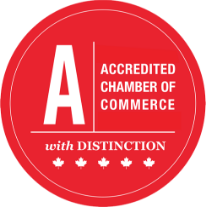Taking action on economic reconciliation has tremendous value for Indigenous and non-Indigenous businesses alike, enabling opportunities for shared economic prosperity and long-term business success. Today, the Ontario Chamber of Commerce (OCC) and Canadian Council for Aboriginal Business (CCAB) released Sharing Prosperity: An Introduction to Building Relationships for Economic Reconciliation in Ontario. This introductory resource is part of the Economic Reconciliation Initiative, a partnership between both organizations aimed at advancing economic reconciliation by building business capacity to implement the Truth and Reconciliation Commission’s Call to Action 92.
This resource offers foundational knowledge and practical guidance on fostering mutually beneficial relationships with Indigenous people, businesses, and communities. It addresses several topics, such as historical context, Indigenous rights, challenges facing Indigenous businesses, and meaningful opportunities for engagement, in addition to centralizing relevant resources and reports for additional learning and capacity-building opportunities. Sharing Prosperity sets the stage for a more comprehensive resource to follow, which will explore different strategies for implementing economic reconciliation initiatives across industries.
“Businesses across Milton recognize the importance and value of fostering meaningful, mutually beneficial relationships with Indigenous Peoples,” said Bianca Caramento, President & CEO, Milton Chamber of Commerce. “While every business is at a different phase of the Truth and Reconciliation journey and not all of the actions recommended in this resource will apply to every organization, we encourage our members to examine and implement relevant actions to build shared economic prosperity across our community.”
The Indigenous economy is strong and growing. Indigenous businesses contribute nearly $50 billion annually to Canada’s GDP, and there are over 75,000 Indigenous-owned businesses and entrepreneurs in Canada. The urgency to advance economic reconciliation is both a moral and an economic imperative. There are many avenues that businesses of all sizes and industries can pursue to advance economic reconciliation. While each approach may not apply to every organization, it is incumbent upon businesses to critically examine and implement the relevant actions that they can take on both an organizational and sector-wide level.
Some of the key actions that businesses can take include:
- Advancing Indigenous cultural awareness and education by sharing territorial acknowledgements, distributing educational reconciliation resources to staff, providing Indigenous cultural competency training, and attending/participating in Indigenous events.
- Promoting equitable Indigenous employment and business opportunities by providing reduced rates/complimentary access to events, memberships, and training for Indigenous businesses/individuals, implementing inclusive Human Resource strategies to recruit and retain Indigenous candidates, auditing workplace policies and procedures to promote reconciliation, linking executive compensation to economic reconciliation performance metrics, and convening an Indigenous Advisory Committee.
- Engaging with Indigenous communities and supporting economic development by making Indigenous community investments, developing Indigenous partnership-building and engagement strategies, implementing Indigenous procurement policies, obtaining certification/accreditation in Indigenous relations, developing a Reconciliation Action Plan, and entering into revenue- or equity-sharing agreements with Indigenous businesses and/or communities.
“We are proud to collaborate with the OCC and release the introductory resource of the Economic Reconciliation Initiative as we continue to take meaningful action towards economic reconciliation,” said Mathew Foss, Vice President of Research and Public Policy, CCAB. “This resource provides companies that want to take a step in the right direction to supporting Truth and Reconciliation a place to start and will begin to pave the way for inclusive growth.”
We wish to express our sincere gratitude and apprehttps://bit.ly/3GaHy2aciation for the invaluable contributions of the Indigenous Advisory Committee members and the CCAB Research team, who provided key insights to ensure this resource is grounded in Indigenous knowledge and experience.
Thank you as well to our Lead Partners, Hydro One, BMO, Bruce Power, CN, Meridian, and our Supporting Partners, the Canadian Association of Petroleum Producers (CAPP) and Ontario Power Generation. To learn more or get involved, contact Sara Beyer, Senior Policy Analyst, OCC, and Andy Avgerinos, Project Manager, Research, CCAB




